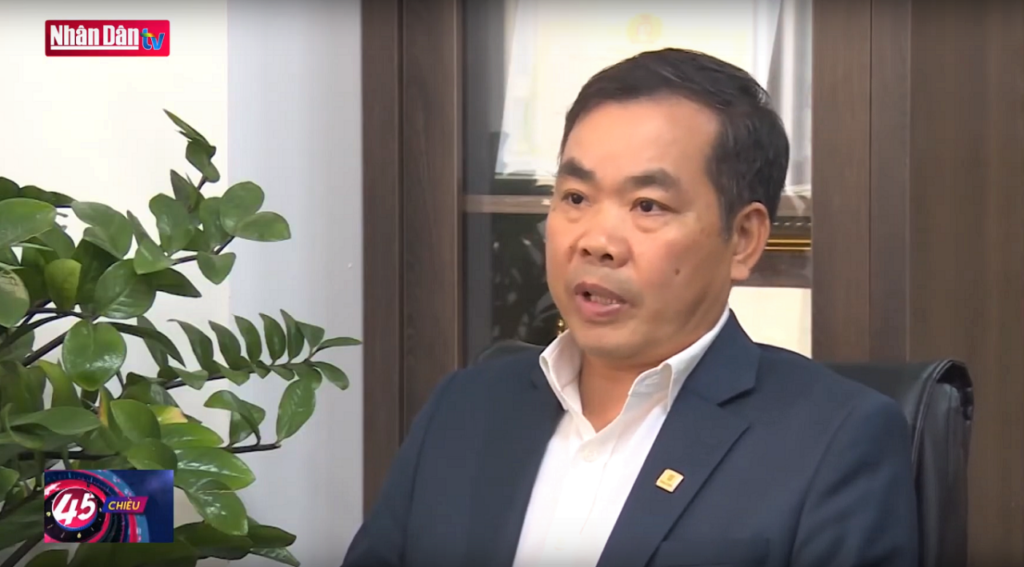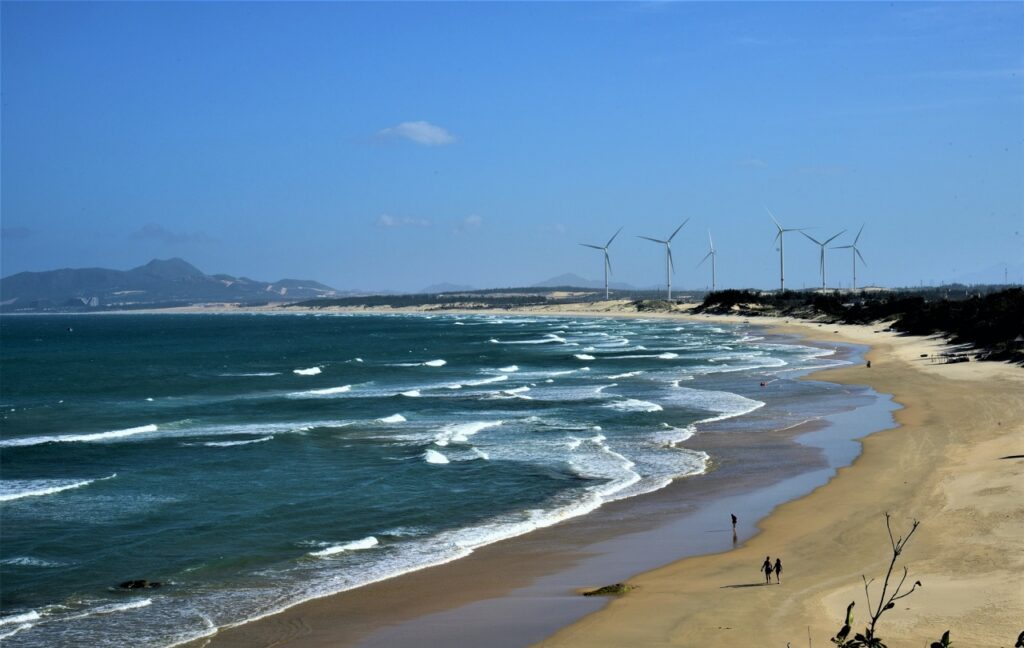Resolution No. 55-NQ / TW on Vietnam’s strategic orientations for energy development through 2030, vision to 2045, signed by the Politburo on February 11, 2020, has had many breakthroughs in national energy development. Mr. Nguyen Quang Huan, President of Halcom Vietnam, shared his viewpoint from enterprise perspective, with the People Television.

People TV’s reportage on Mar 9, 2020 (in Vietnamese) – Resolution 55-NQ/TW: Demand & supply harmonization in energy
Increasing renewable energy supply
The Resolution has set out specific objectives: Meeting domestic energy demand, achieving the goals of the 10-year Socio-Economic Development Strategy 2021 – 2030; in which, primary energy will reach about 175 – 195 million TOE (tons of oil equivalent)by 2030, about 320 – 350 million TOE by 2045. Total power generation capacity will reach about 125-130 GW by 2030; the electricity output will rise to about 550-600 billion KWh. Notably, share of renewable energy sources in the total primary energy production will be increased to 15-20% by 2030; 25-30% by 2045.
The resolution requires the abolition of monopoly and transparency of electricity purchasing price, and a mechanism to attract non-state investment into the national electricity transmission system. The national electricity transmission system is encouraged to attract private sector and operated independently under State control. At the same time, the road map for competitive electricity market, mechanism for direct power purchase contract between producers and consumers, transparency of electricity purchasing price need to speed up.
Particularly for renewable energy development: Concentrating on building breakthrough mechanisms and policies to encourage and promote the development of renewable energy sources in order to replace fossil energy sources at maximum; Prioritizing the wind and solar energy for electricity generation; encourage investment in power plants using urban waste, biomass and solid waste in parallel with environmental protection and circulated economic development. For wind and solar power: Prioritize development in line with the ability to ensure system safety with reasonable electricity price. Encourage the development of rooftop and surface solar power; Develop breakthrough supportive policies and mechanisms for offshore wind power development in conjunction with Vietnam Sea Strategy.

Encouraging the private sector to participate in energy development
Resolution No. 55 highlights on the comprehensive restructuring of state-owned enterprises in the energy field towards focusing on core and advantageous fields; separating business functions from state management functions; applying advanced management models and practices, improving international credit rating, thoroughly implementing public and transparent operation; focusing on the efficiency improvement of exploitation and usage of national energy infrastructure; completing regulations on resource and asset assessment in accordance with international practices and practices; thoroughly handling and restructuring inefficient state-owned projects and enterprises in the energy field; studying and implementing a mechanism of selling on limited duration or long-term lease to state-owned power plants, fuel depots, oil refineries, etc.
On that basis, specific mechanisms and policies need to be reviewed, supplemented and adjusted for some important energy projects, especially for urgent power investment ones; ensuring sufficient capital for state-owned energy enterprises to implement strategic objectives and tasks associated with national defense and security. “Accordingly, creating a favorable and transparent environment; publicize the planning and portfolio of investment projects, removing all barriers to attract and encourage private participation in investment and development of domestic and abroad energy projects, paying attention to power generation projects and electricity wholesaling & retailing according to the market mechanism; Continue to encourage foreign investment with scale, quality and efficiency for the energy sector ”– the Resolution specifies. Energy development is associated with environmental protection policies in order to achieve the goal of reducing greenhouse gas emissions, promoting circulating economy and sustainable development.
Reference: Ministry of Industry and Trade of Vietnam
